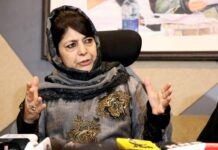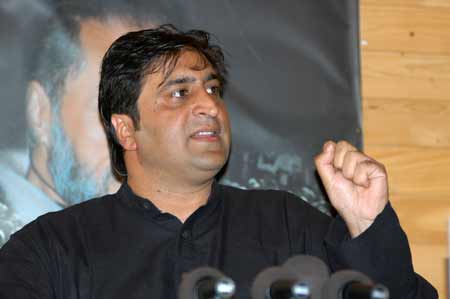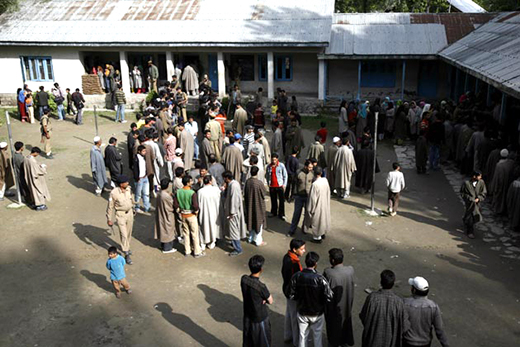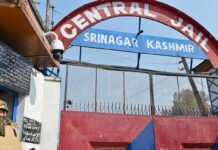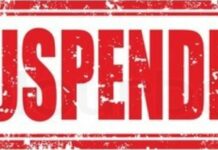SRINAGAR: Jammu and Kashmir Housing and Urban Development Department, Principal Secretary, H Rajesh Prasad on Wednesday said that imposition of a property tax is mandatory likewise other parts of the country while ten percent of rebate can be availed by those early submitting the tax, which can also be paid in two equal instalments.
He added that the implementation of a property tax is required, just like in other regions of the nation, and that those who pay it early or in two equal installments can receive a 10% discount.
In a press conference at the Convention Centre, Prasad told a group of journalists, “We have started with a baby step. There is still a long way to go to enhance the financial structure and make them surplus.”
The Principal Secretary added, “Moreover, as per Act 10% refund can be received by early filing of Property Tax,” stating that “Property Tax is to be charged annually and can be paid in two equal instalments and it would not be burdening common citizen.”
Rahul Yadav, the commissioner of the Jammu Municipal Corporation, Sapna Kotwal, the joint director of the DIPR in Jammu, and other officers stood on either side of him.
He added that the department generated income of Rs. 115 crores while spending Rs. 850 crores on operations.
Prasad continued, noting, “This action is in the advantage of the people and no disinformation or mis-campaign be launched to mislead masses.” He stated that with the application of the Property Tax, an estimated Rs 150 crores in revenue collection is expected in 2023–2024.
According to Prasad, the interests of the underprivileged and other societal groups would also be taken into account.
He continued by saying that a strong and efficient system of local self-government is essential to the efficient operation of a democracy. Having sufficient financial resources available to the institutions of self-government is a fundamental precondition for the existence of such a system, and the more these resources are mobilised at the local level by these governments, the better for these governments’ efficient operation.
“Property taxes are one of the fundamental pillars of municipal funding around the world. He continued, “The Government of India and the Finance Commissions it established have consistently and strongly advocated using this resource.”
“As a result, the Government of Jammu and Kashmir announced the property tax in an effort to strengthen municipal organisations’ financial situation and enable them to deliver better municipal services. Tax rates in the UT of J&K are announced in a way that the effects on small firms and households are minimal and progressive in nature,” he added.
J&K has announced reduced property tax rates in comparison to neighbouring states and UTs, according to Prasad, who also noted that property tax is being imposed for the first time in J&K.
Notably, Jammu and Kashmir is one of the few Indian states and union territories where property taxes have not been implemented yet.
Property in the Old City or Sarwal will be subject to reduced property taxes compared to upmarket areas like Gandhi Nagar. Property tax is related to the local stamp duty tax, therefore property valuation of the various areas is captured differently. Moreover, weighting for the property’s age, use type, and building style, among other factors, is employed to arrive at the Annual Taxable Value in a more thorough manner, he added.
According to the new tax formula, he claimed, residential properties with a build-up area up to 1500 sq ft are also discounted, assuring relief for residential properties in the LIG and MIG categories. Residential properties with an area of up to 1000 sq ft would be exempt from property taxes.
It is important to note that most stores, particularly those in neighbourhood and historic markets, fall into this group.
With minimal tax repercussions for individuals, this new property tax policy will assist municipal bodies in raising funds for greater municipal services. More people are expected to start enterprises in Jammu and Kashmir as a result of improved municipal services, he said.
Prasad continued by stating that property tax revenue will be used to repair infrastructure, develop new parks and playgrounds, and maintain existing facilities, considerably improving the services provided by Municipal bodies.


